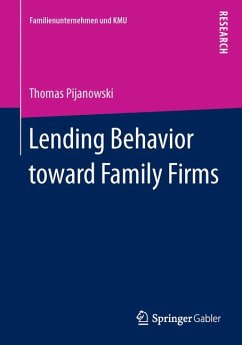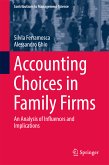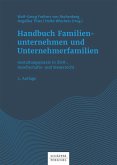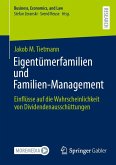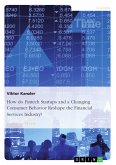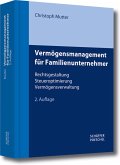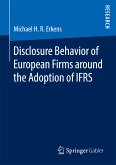Contents
- Research Regarding Lending Behavior toward Family Firms
- Theoretical Model
- Method, Results and Conclusion
Target Groups
- Researchers and students in the field of business management with a focus on family business research
- Managers and owners of family firms, banks and bank loan officers
The Author
Dr. Thomas Pijanowski wrote his dissertation under the supervision of Prof. Dr. Andreas Hack and Prof. Dr. Arist von Schlippe at the Witten Institute for Family Business (WIFU) at Witten/Herdecke University.
About the Editors
The series Familienunternehmen und KMU is edited by Prof. Dr. Andreas Hack, Prof. Dr. Andrea Calabrò, Prof. Dr. Hermann Frank, Prof. Dr. Franz W. Kellermanns Ph.D. and Prof. Dr. Thomas Zellweger.
Dieser Download kann aus rechtlichen Gründen nur mit Rechnungsadresse in A, B, BG, CY, CZ, D, DK, EW, E, FIN, F, GR, HR, H, IRL, I, LT, L, LR, M, NL, PL, P, R, S, SLO, SK ausgeliefert werden.

